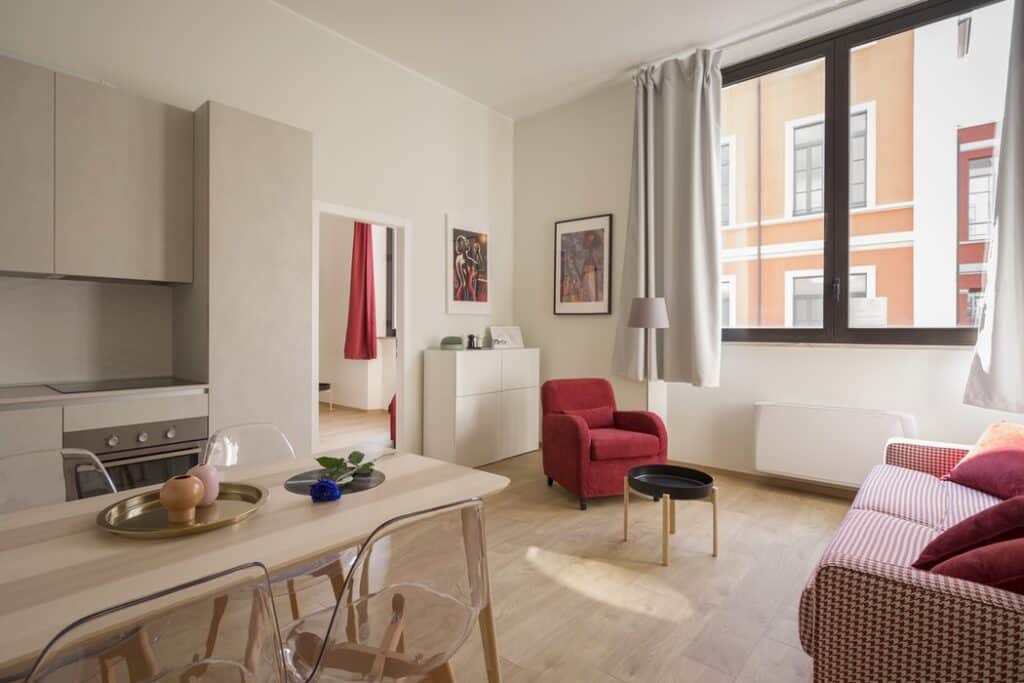
France has much to offer international students, from iconic cultural sites like the Notre Dame Cathedral and the Eiffel Tower to buzzing nightspots and top-class educational institutions. If you’re aiming to make the leap and settle in France to study, there are many factors to consider — from obtaining the right visa to sorting out where to live.
At Remitly, we know it can all be a little overwhelming to think about. That’s why we’ve put together this condensed guide which covers the most important things to keep in mind as you prepare to say ‘Bonjour’ to life as a study-abroad student in France.
Choosing a study abroad program
Researching France’s study abroad programs is the first step in the process. Read on for more information about the types of study-abroad programs in France, so you can begin to zero in on the best options for you. You can also check out our guide on how to choose a study-abroad program for more advice.
What types of study abroad programs are there in France?
France has three main types of study-abroad programs: home university-sponsored, direct enroll, and third-party. Let’s take a look at each one.
Home university-sponsored study abroad programs
If you’re currently a student at an American university or a university in another country, your school may have opportunities available for you. Many schools partner with French private and public universities to offer study abroad programs in France for their students.
Typically, you apply for home university-sponsored programs through your home school’s study abroad office. These programs may last for part of a semester, an entire semester, a full summer, or a complete academic year.
Direct-enroll study-abroad programs
Another option is to apply directly to a university in France and enroll as a student. French universities accept international students for both graduate and undergraduate studies. Typically, direct enrollment is for the summer, a semester, an entire academic year, or longer.
Third-party study-abroad programs
Third-party study abroad programs are available through for-profit companies and nonprofit organizations. AIFS Abroad, CEA CAPA, and CIEE are examples of third-party France study abroad providers.
Third-party program options may allow you to study at a French university or involve classes on a campus run by the provider. Usually, you apply for these study abroad programs in France through the provider.
In addition to courses, third-party study-abroad programs in France often include organized trips to tourist attractions and cultural events.
What are popular destinations for people studying abroad in France?
The best city for studying abroad in France depends on your preferences. The following are some of the most attractive cities for study-abroad opportunities.
Paris
The French capital city, located along the Seine River, Paris, is the dream destination for many students. Not only is Paris home to great universities like the Université PSL, the Institut Polytechnique de Paris, and Sorbonne University, but it’s also the cultural and economic heart of France, making it a great place to sample French cuisine, immerse yourself in a new culture, and see famous landmarks like the Eiffel Tower.
Nice

Located on the French Riviera, Nice provides easy access to the beach and a pleasant Mediterranean climate. The Université Côte d’Azur is also located in this historic city that was founded around 350 BC.
Tours
Situated between the Loire River and the Cher River, Tours is a beautiful destination and home to Université Tours. The city dates back to ancient times and is known for its gorgeous Gothic architecture. A smaller city than Paris and Nice, Tours is a great pick for students who want to experience French culture in a more relaxed environment.
Grenoble
Situated in the Alps, Grenoble offers breathtaking views, plenty of outdoor recreational opportunities, and a chance to study at the Université Grenoble Alpes. Grenoble is known for being an affordable alternative to Paris, making it an excellent choice of France study abroad destination for students on a tight budget.
Aix-en-Provence
For study-abroad students who prefer a place with a small-town feel to the hustle and bustle of Paris, this city in the Provence region can be an ideal location. Its size gives you a chance to get to know the local French people and the town is home to a major university, Aix-Marseille Université.
What are the popular subjects to study abroad in France?
From area studies courses and program options focusing on French history and culture to liberal arts to STEM, you have an array of study-abroad program options in France. The following are some of the most popular subjects for students studying abroad.
French
Many students come to France to experience full French language immersion, and there are programs focused specifically on developing French language skills. Most universities offer courses on the French language, and there are numerous third-party party programs for those who want to learn French in France, including AIFS Abroad programs and IES Abroad courses in Paris.
Art history
Home to prestigious museums like the Louvre and the Musée d’Orsay, Paris gives you the opportunity to see some of the most famous works of art up close and personal, and many universities in the City of Lights, like the University of Paris and the Sorbonne offer art history courses.
Political science
Sciences Po is consistently ranked among the top schools for political science in the world, and its location in Paris makes it an appealing place to spend a semester or academic year.
Business
As a major economic center in Europe, France is home to top business schools like the Sorbonne in Paris and the INSEAD in Fontainebleau. You can even find a business study abroad program that includes an internship, allowing you to gain real-world work experience.
Can you get financial aid to study abroad in France?
Financial aid is available to help cover tuition, fees, and travel costs related to studying in France. If you’re an American student, you can use federal financial aid at a number of French universities.
In addition, there are scholarship programs for students hoping to study abroad in France. Check out articles on study abroad scholarships and alternatives to loans for more information.
Getting a French student visa
It almost goes without saying that the first step to becoming a student in France is securing your place at a university or other educational institution. Then, if you’re coming from outside the EU/EEA/Switzerland, you’ll need to look into applying for a long-stay student visa. In most cases, this will be a long-stay ‘VLS-TS’ visa, and the application is made through your local French embassy or consular authorities.
Depending on where you’re based, you may be able to fill out the application form online here. The supporting documents you’ll be expected to show include:
- Valid passport
- Two passport photos
- Official letter or certificate of acceptance on your course
- Proof that you have accommodation secured for your stay — for example, an official letter from the university or an official rental agreement with a private landlord
- Proof of a minimum monthly income of €615 — for example, a recent bank statement or a letter from an officially identified guarantor
Once this is done, you can book your in-person appointment at your local French consular services to provide biometric data and complete the application.
Note that if you’re moving from one of the many countries in the ‘Études en France’ scheme, you’ll have to first register on the Études en France platform here. The list of applicable countries is on that page.
The cost of the process is €50 for Études en France students and €99 for everyone else.
Finding accommodations when studying abroad

Finding the right place to live in France is, of course, a hugely important part of the process. There are a number of possibilities open to you:
University accommodations
Public university accommodations in France are managed by CROUS, an organization that oversees halls of residence. The rent is low, and the properties are located close to campuses, with plenty of opportunities to mingle with other students. Demand is high, and unless your accommodation is taken care of as part of a formal exchange program, international students need to apply through this page.
The International University Campus
Another option for accommodations in Paris is the International University Campus. This sprawling network of dozens of residences in Paris is the largest site hosting international students in the region. Priority is given to students studying for Master’s degrees and doctorates, and prices vary depending on the kinds of rooms and amenities you require. Applications can be made here.
Private residences
Plenty of apartments and other properties are available for students across the country, and you can browse many of the options at specialist listings sites like Les Estudines and Adele. Read our guide to renting a property in France for more tips.
Homestays
Another option is to stay with a host family while you’re in France. This can be a great choice if you’d enjoy home comforts and the chance to get to know local people. Living with a French family can also be a great way to build your French language skills.
You can check out homestay possibilities at CoHomly.
Understanding the Caisses d’Allocations Familiales
Depending on your financial situation, you may be able to get help paying for your accommodations through the Caisses d’Allocations Familiales or CAF. The program reimburses eligible foreign and French students for the costs of renting private apartments. If you qualify, you will need to pay for your housing upfront and will then get money back from the government.
When deciding if an applicant qualifies for additional funding through the CAF program, the French government considers your income, your family’s income and assets, and the type of housing you live in. You can check your eligibility for the program at the official CAF website.
Enrolling in social security
In France, study-abroad students typically qualify for the French public health insurance program, allowing them to receive reimbursement for medical expenses. Unless you’re a resident of a European Union nation, who holds a European Health Insurance Card (EHIC), the French government requires you to become enrolled in Social Security, so your health expenses can be covered during your international experience.
France offers an easy online form for Social Security registration. Visit this site to complete the process as soon as you’ve registered for your France study abroad program at a French university.
Finding a part-time job while studying in France
Many international students will want to get a part-time job while they study. It is a good way to supplement your income and help you get a deeper feel for the culture and make new friends. The good news is that the VLS-TS visa permits you to work 964 hours per year.
Chances are there’ll be many opportunities in the city or town you settle in, with jobs in retail and hospitality always popular among students. It may be worth taking time out to polish your résumé before you move to France. After all, moving to a new country and settling into your course will be a hectic and exciting time, and working on your résumé may not be uppermost in your mind at that point.
You’ll be able to search for jobs using online listings, checking noticeboards at the university, or even exploring the local area and popping into shops, bars, and restaurants in person.
Setting up a bank account
Opening a French bank account means you’ll be able to integrate more seamlessly into your new life abroad. As you might expect, there are plenty of great banks to choose from, and you can browse their websites long before you move to France to see what kinds of services they offer. When comparing the options, it’s useful to keep these questions in mind:
- Does the bank charge administration fees for your account?
- Can you access your account and manage your money through a phone app?
- Does the bank have staff who can speak your first language?
- Can you make use of overdrafts, insurance, savings accounts, and other potential services?

Sending money back home
While your mind is sure to be on the details of your upcoming course and the excitement of getting to know a new city and new people, many international students will also be thinking of how they can send money back to support their loved ones at home. Some international students in France may simply want to transfer gifts for birthdays and other events, while others will need to provide ongoing financial support to family and friends.
In either case, you’ll likely want to ensure you get the most value from your remittance service. This is where doing some homework comes in very handy. You may find that using an online-only money transfer company will be more cost-effective than banks and traditional land-based firms. As exclusively digital companies don’t have to cover the high running costs of physical premises, they’re often able to provide customers with lower fees and highly competitive exchange rates.
Tips for studying abroad in France
To have the best experience during your study-abroad placement, follow these tips.
Talk to students who have already studied abroad in France
You can learn a lot about what it’s like to study abroad in France by talking to students who have already done it. Connect with others on campus and via social media to find out what you can expect.
Get acquainted with French culture
One of the biggest benefits of participating in a study abroad program is having a chance to experience a new culture, but to do that, you need to get out and explore.
Plan to travel during your time abroad. See the whole city, visit other places in France, and consider making weekend trips to other European countries. Learn more about how to get the richest cultural experiences while you study abroad.
Work on your language skills before you go
Having some basic French language skills will help you communicate with others more easily while you study abroad in France. Language-learning apps can be a great way to build your verbal proficiency before you travel.
Manage homesickness
It’s natural to experience homesickness while participating in a study abroad program. By being prepared for it, you can take steps to ease the stress and loneliness that sometimes come from being away from home. Find out more about how to deal with homesickness while studying abroad.
Start as early as possible
France is a very popular study-abroad destination. Planning for your experience as early as possible can improve your chances of getting accepted to a program and finding accommodations, especially if you plan to study in Paris.
Establish a budget
Managing your finances will be important for paying bills and enjoying an active social life while you study abroad in France. Follow our budgeting tips for international college students to make your money go further.
